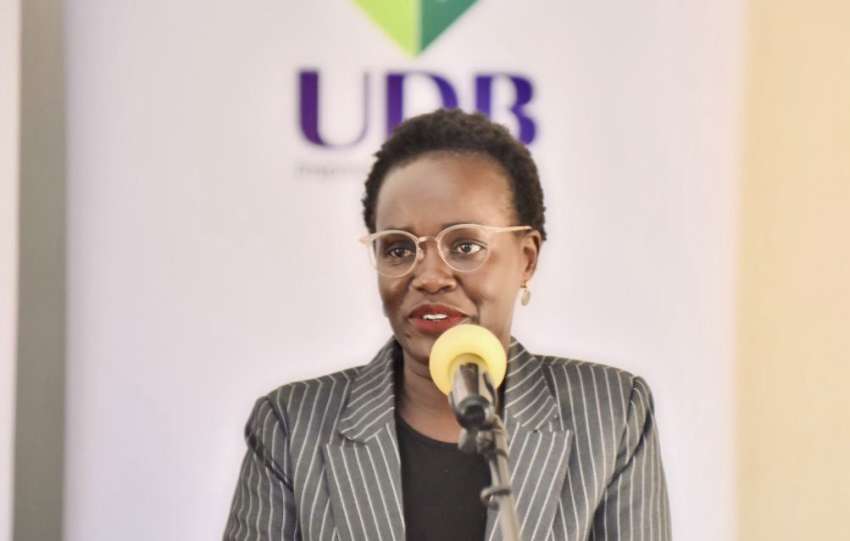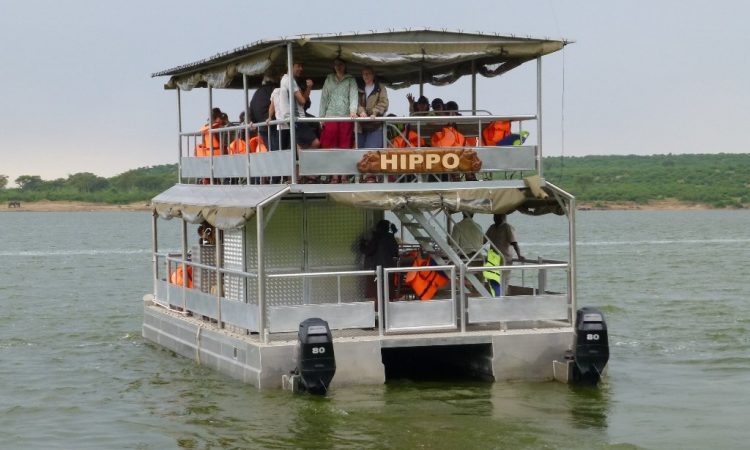Tourism Stakeholders from Kenya and Uganda discussed joint initiatives in destination marketing at the 3rd Uganda-Kenya Coast Tourism Conference that took place on 20th and 21st November 2024 at the Speke Resort and Convention Centre in Munyonyo under the theme ‘’Promoting job creation, inclusivity and sustainability’’.
The 2-day conference organized by the Consulate General of the Republic of Uganda in Mombasa in partnership with the Ministry of Foreign Affairs, Ministry of Tourism, Wildlife and Antiquities, Uganda Tourism Board, Uganda Wildlife Authority, Kenya Association of Tour Operators, Uganda Tourism Association, Association of Uganda Tour Operators among other key regional tourism organizations and stakeholders saw hundreds convene to strategize on collaborations, marketing initiatives, discuss challenges and opportunities as well as promoting job creation, inclusiveness and sustainability if the two countries are bear fruit in the Tourism sector.
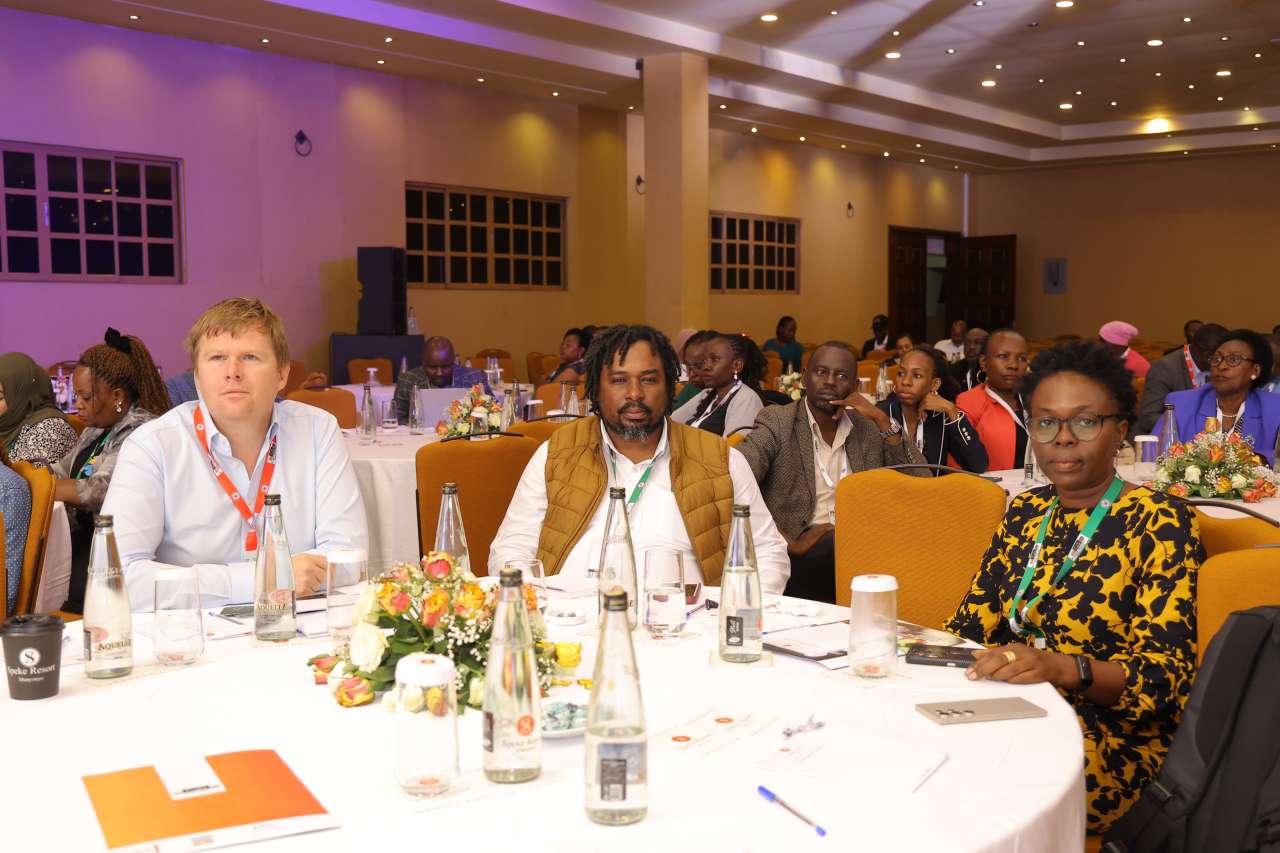
As part of the activities leading to the conference from the 8th to 18th of November 2024, tourism stakeholders from Kenya enjoyed a lump sum of tourist activities including a golf tournament at Uganda Golf Club in Kitante, fam trips in Kibale Forest National Park, Kidepo Valley National Park, Murchison Falls National Park, Bwindi Impenetrable Forest National Park, and Queen Elizabeth National Park. Additionally, they were also immersed in Kampala sightseeing, visited Namugongo Martyrs Shrine, and visited Ewaffe Cultural Village where they delved into medicinal plants, preparation of Luwombo, and Baganda culture among several other aspects.
Hon. John Mulimba, the Minister of State for Regional Cooperation and Chief Guest at the conference highlighted that this year’s theme resonates deeply with our shared vision of harnessing the rich resources of our nations to create opportunities for the people, foster inclusiveness and ensure that our tourism initiatives are sustainable for generations to come.
He said, ‘’Uganda and Kenya with their stunning landscapes, diverse wildlife and rich cultural heritage have the opportunity to share their offerings with the rest of the world. Our coastlines have treasures waiting to be discovered and together we can present a united front that showcases the best of our countries’’.
‘’As we embark on this conference, let us remember that our collaboration is not solely to enhance our tourism sectors, but it’s about creating opportunities and jobs that uplift our communities. In tandem, when we invest in tourism, we invest in the livelihoods of our countless individuals, entrepreneurs, artisans, service providers and families who depend on this critical industry and as a result, working together means we create an inclusive economy where everyone has a stake in our success and shared vision’’.
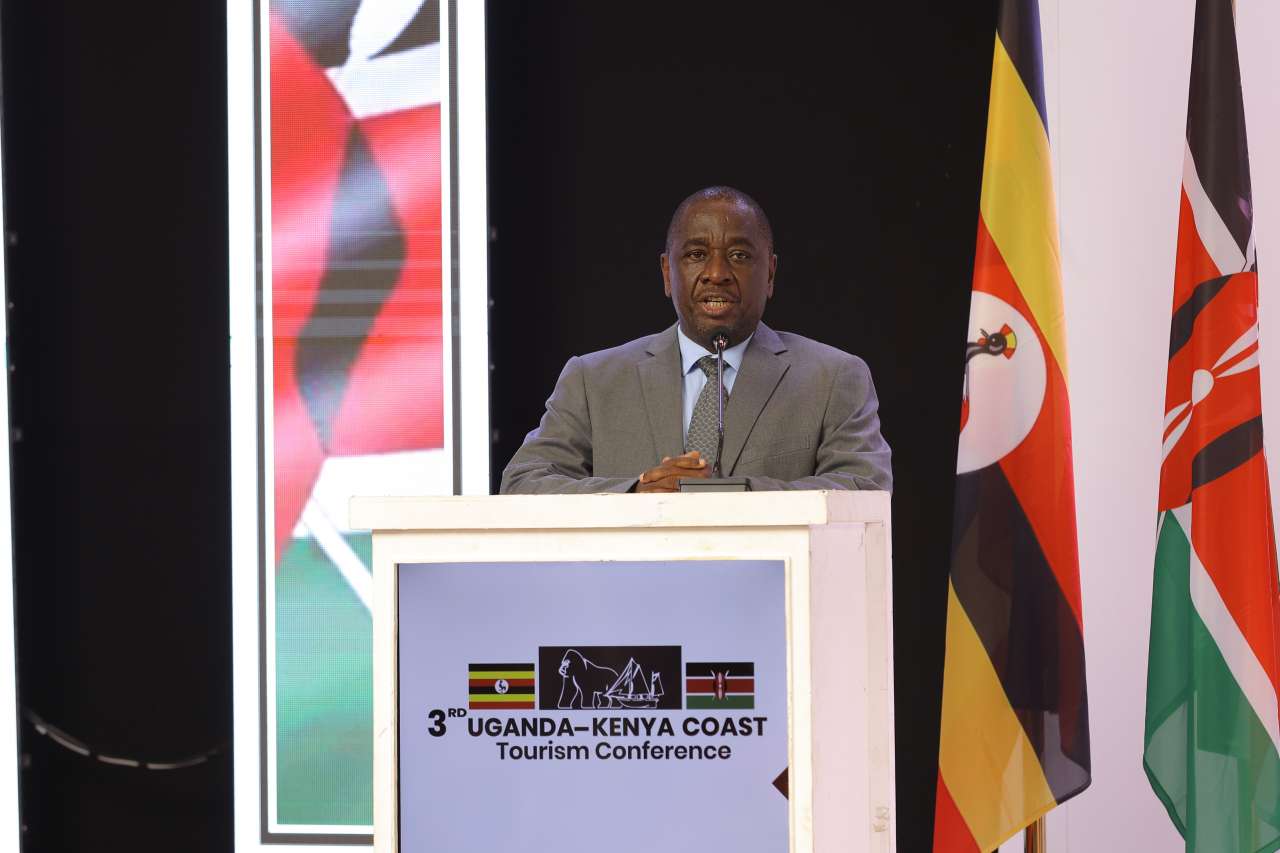
Ambassador Paul Mukumbya, the Consulate General of the Uganda Consulate in Mombasa revealed that this year’s conference and theme have seen us come together as we started with a Golf Tournament at Kitante Golf Course and Fam trips. The purpose of the Golf tournament was to promote sports tourism in general as the first tournament was held in April at Vipingo Ridge in Kilifi County and the consulate prospects onboarding all the other segments of sports on the program to help grow tourism for the two destinations (Uganda and Kenya).
He noted, ‘’Our Kenyan operators visited the various Uganda tourism sites and attractions and Safari Lodges as they received firsthand product knowledge and networked with Ugandan operators.
‘’Kenya is our biggest source market. In 2023, tourism between Uganda and Kenya experienced remarkable growth. According to Kenya’s annual tourism performance report, the number of Ugandans visiting Kenya increased from 150,000 to 201,620, accounting for 10% of all tourist arrivals and establishing Uganda as Kenya’s second-largest tourism market after the United States. Similarly, 490,000 Kenyan tourists visited Uganda in the same year, making Kenya Uganda’s second-largest source market for inbound tourism. As Uganda – our target is to get 1 million tourists from Kenya who visit Uganda as we are working with our mission in Nairobi to achieve this. Additionally, we are promoting complementarity and cross-selling – we know Kenya has stunning Coastal beaches but Uganda boasts of the primates. We look forward to tapping into international tourists that visit Kenya and alluring them to visit Uganda too on the same itinerary.’’ He remarked.
The increased interest of Kenyans visiting Uganda was a result of several events such as Festivals, Golf and Rugby tournaments, music concerts among others.
Doreen S. Katusiime, the Permanent Secretary at the Ministry of Tourism, Wildlife and Antiquities cited that the Uganda-Kenya Coast Tourism Conference has grown into a bigger and better partnership for the mutual benefit of the two countries and serves as a crucial platform for Dialogue and cooperation as the two nations are bonded by rich cultural and economic ties.
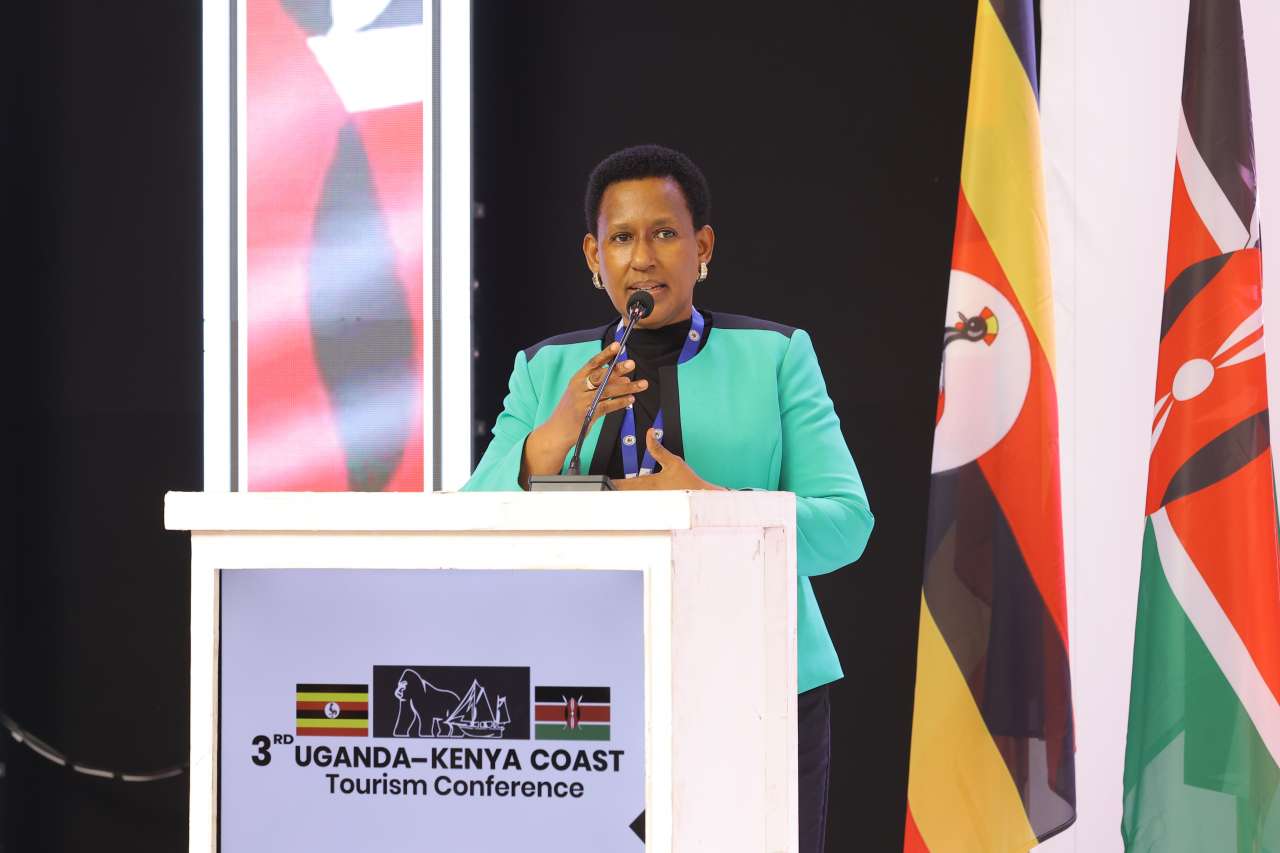
She said, ‘’ Both Uganda and Kenya have world-renowned attractions but our true strength lies in our ability to create seamless cross-border experiences for our visitors by addressing the bottlenecks that hinder regional tourism and we open doors to vast tourism opportunities for growth and development and increased competitiveness’’.
‘’This year’s theme addresses the bottlenecks in promoting regional tourism is critical for both Uganda and Kenya as it highlights the need to identify and overcome the barriers of regional tourism and the need to identify them as they hinder full development.’’ She concluded.
The conference featured its first-panel discussion on the theme “Addressing Bottlenecks to Promoting Regional Tourism,” sparking an engaging thought-provoking conversation about the need for transformative changes in training for the tourism and hospitality sector. The panel, consisting of experienced professionals, underlined the importance of equipping the workforce—particularly younger generations like Gen Z’s—with practical skills to meet the sector’s rapidly changing demands. A key insight from the discussion was the need to shift from theory-based education to hands-on training, as the panellists pointed out that an overly theoretical curriculum often leaves learners half-baked for the practical realities of the workplace in the tourism and hospitality sectors.
The second panel discussion highlighted key strategies for strengthening this sector with a focus on three critical areas including improving infrastructure, enhancing collaboration, and managing the reputation of Uganda and Kenya as premier tourism destinations.
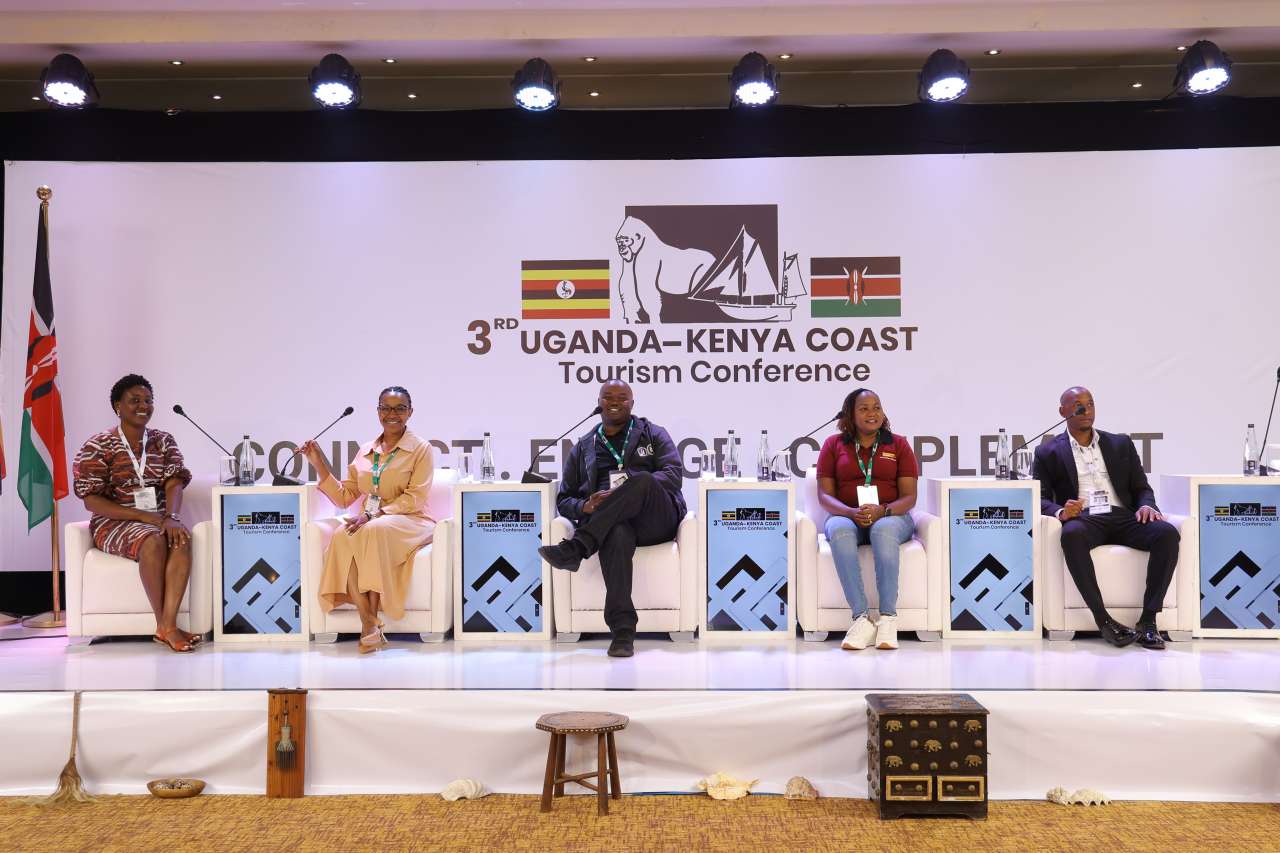
The discussants highlighted the essentiality of improved infrastructure as the key for regional tourism industry to thrive. They emphasized the necessity to invest in roads, airports, railways, accommodation facilities among other tourism-related facilities to provide visitors with smooth and enjoyable travel experiences. Well-developed transport systems not only improve access to tourist destinations but also open up economic opportunities for both countries through tourism-related activities.
The panellists also emphasized the importance of collaboration between Uganda and Kenya in developing joint tourism packages, promoting cross-border experiences, and implementing unified marketing strategies. They identified shared wildlife corridors and jointly managed heritage sites as key opportunities for partnership. Through combined efforts, the two nations can leverage their resources and expertise to strengthen and enhance the competitiveness of the East African tourism market.
The panellists stressed the importance of maintaining a good reputation, especially in a world where perceptions are key determinants for travel decisions. They highlighted the pre-requisite of promoting a positive image of both Uganda and Kenya internationally and stressed the need for streamlined communication and effective public relations. These were seen as key strategies for showcasing the region’s distinct offerings and dispelling misconceptions.
The Kenya Coast offers a truly unique and unforgettable array of tourist experiences including award-winning white sandy beaches, rich historical and cultural immersion, sumptuous coastal cuisines, and thrilling wildlife safaris. Uganda stands out with its highly sought-after adventures such as captivating gorilla trekking, mountaineering, bungee jumping, and white-water rafting among others. Together, these destinations create a complementary and mutually beneficial opportunity for tourism private sector players in both countries.
The 4th Uganda-Kenya Coast Tourism Conference will take place in Kilifi County, Coastal Kenya on 20th November 2025.
The conference came at an opportune moment as His Excellency President Yoweri Kaguta Museveni commissioned the construction of the 272-kilometer Standard Gauge Railway (SGR) from Malaba in Tororo to Kampala. This strategic project estimated at €2.7 billion (approximately $3 billion or UGX 10.8 trillion) marks the first phase of the long 1,700 km electric railway network designed to modernize the transport sector.
The construction, led by Turkish firm Yapi Merkezi in a joint venture with YM Global, is expected to be completed within 48 months. This venture is financed by the Government of Uganda with additional support from credit institutions, with Citibank serving as the lead arranger for the syndicated credit facility.
During the commissioning, President Museveni emphasized that the SGR forms a critical component of Uganda’s long-term strategy to rationalize the transport system, decongest roads, and enhance economic competitiveness. “A reliable and cost-effective railway system is vital for reducing transportation costs and spurring industrial growth,” he said.
Uganda’s SGR will seamlessly integrate with Kenya’s railway network, as the two countries have synchronized timelines to ensure a smooth connection at the border.
Minister of Works and Transport, Gen. Edward Katumba Wamala, underlined the importance of adherence to transparency, respect for timelines, and the implementation of Uganda’s National Content Policy to maximize local participation in the project.
“This project will cut transportation costs by nearly half, positioning Uganda as a logistics hub for the East African region,” the minister noted.
The SGR project is expected to significantly boost Uganda’s economic prospects by offering a modern, efficient alternative to road transport, the railway will enhance trade flows, reduce wear on the country’s road network, and lower carbon emissions through its electric-powered trains as this will also highly impact tourism and trade for the two countries.
About Guide2Uganda
Guide2Uganda (www.guide2uganda.ug) is the most comprehensive source of travel information about Uganda that exists on the web, with more content on its cities & towns, accommodation, attractions, events, museums and galleries than any other online guide that currently exists for Uganda; as well as being a dynamic travel news and events driven site with fresh content added daily.
According to WeFollow & Peer Index (that measure online influence), we are among the most influential online media organizations in Uganda. Guide2Uganda was also awarded ‘’Best Destination Website in Uganda’’ by Jumia Travel Uganda in the 2018 Africa Travel Awards.
Share your events, travel stories & photos with the world via email: info@guide2uganda.ug.

